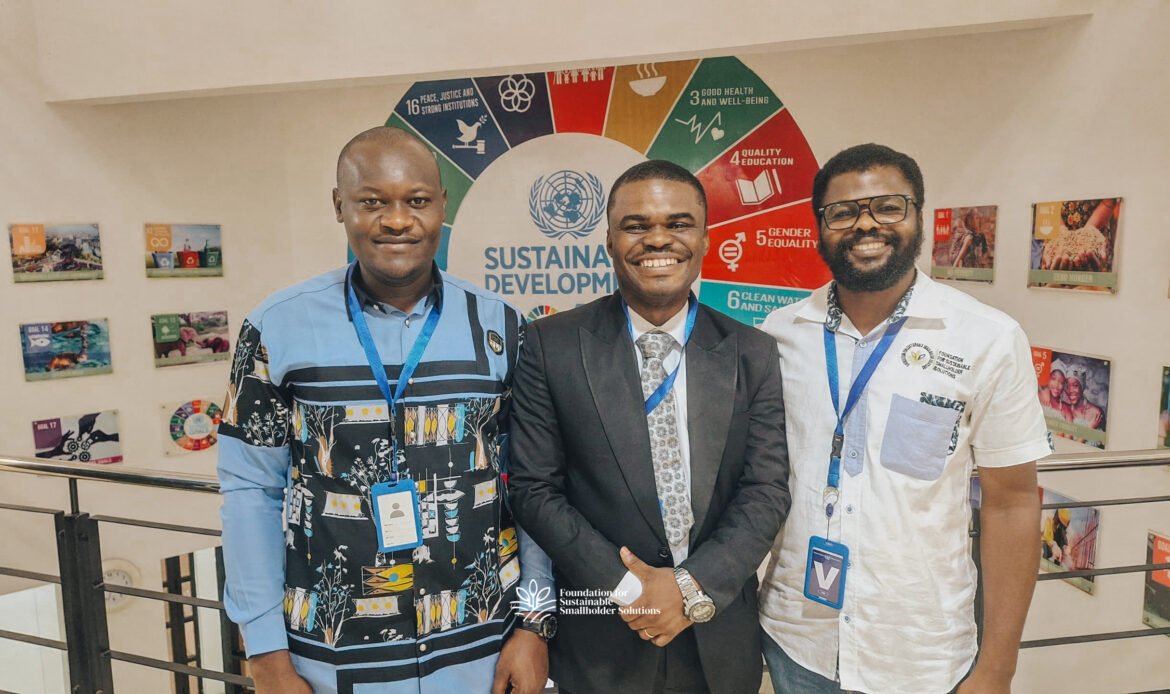It was an inspiring and action-oriented day on the 30th of July 2025 at the United Nations House in Abuja as key stakeholders from across Nigeria’s agricultural and education sectors gathered for a high-level workshop aimed at unlocking innovative strategies for Work-Based Learning (WBL) and entrepreneurship and skills development in the agricultural sector.
The one-day workshop, organised by UNESCO with support from the Republic of Korea, was held under the theme: “Enhancing WBL and Apprenticeship in Agriculture: Strengthening Public-Private Partnerships for Skills Development and Employability.”
The event forms part of the Better Education for Africa’s Rise (BEAR III) project, a multi-country initiative focused on strengthening Technical and Vocational Education and Training (TVET) systems. BEAR III specifically targets agro-processing and post-harvest management in Nigeria and other West African countries, aiming to build employable skills for youth, particularly women and disadvantaged groups, through practical learning models such as internships, apprenticeships, and on-the-job training.
Our Contribution to the Dialogue
The Foundation for Sustainable Smallholder Solutions (FSSS) was ably represented at the workshop by our Country Team Lead, Farmer Timothy Azakere, and Partnership & Grant Mobilisation Manager, Eric Nyikwagh. Farmer Timothy spoke during the stakeholder intervention session, highlighting how FSSS’s Farmer Hubs are actively transforming rural agriculture by serving as centres of excellence in:
- Capacity building for smallholder farmers
- Market access facilitation
- Input linkages and business incubation

He emphasised how these hubs integrate practical, real-world training opportunities, key features of WBL, directly into local farming communities, thereby creating scalable models for youth engagement and agripreneurship.
Key Highlights from the Workshop
The workshop brought together a broad coalition of government institutions, private sector players, development partners, and civil society organisations. Some major takeaways include:
- A multi-stakeholder consensus on the need for a structured, accredited, and standardised WBL system to bridge the gap between classroom learning and industry demands.
- A robust roundtable discussion on incentives for private sector participation in WBL, including policy reforms, funding mechanisms, and replicable success models in agripreneurship.
- Contributions from agencies like NAERLS, IITA, NDE, ARCN, NATEN, and UNESCO, which shared insights into integrating research, policy, and skills training into agricultural education.
Towards a More Competitive Agricultural Economy
The event concluded with actionable commitments to:
- Enhance the accreditation and certification of formal and informal agricultural training
- Strengthen public-private partnerships (PPPs) to scale WBL models across value chains
- Support the newly established Sector Skills Council for Agriculture (SSC4A) in aligning workforce training with market needs
The consensus was clear: Nigeria’s agricultural transformation hinges on a sustainable, competitive, and inclusive skills development ecosystem. WBL, when strategically implemented, can bridge the gap between youth aspirations and employment opportunities in one of the country’s most critical sectors
Looking Ahead
FSSS is proud to contribute to this important national conversation. We reaffirm our commitment to empowering rural communities, scaling farmer hub models, and partnering with stakeholders to ensure that every young Nigerian in agriculture has access to quality, work-integrated learning opportunities.
We thank UNESCO, the Republic of Korea, and all partners for championing this agenda. Together, we can unlock the full potential of Nigeria’s agricultural workforce.


